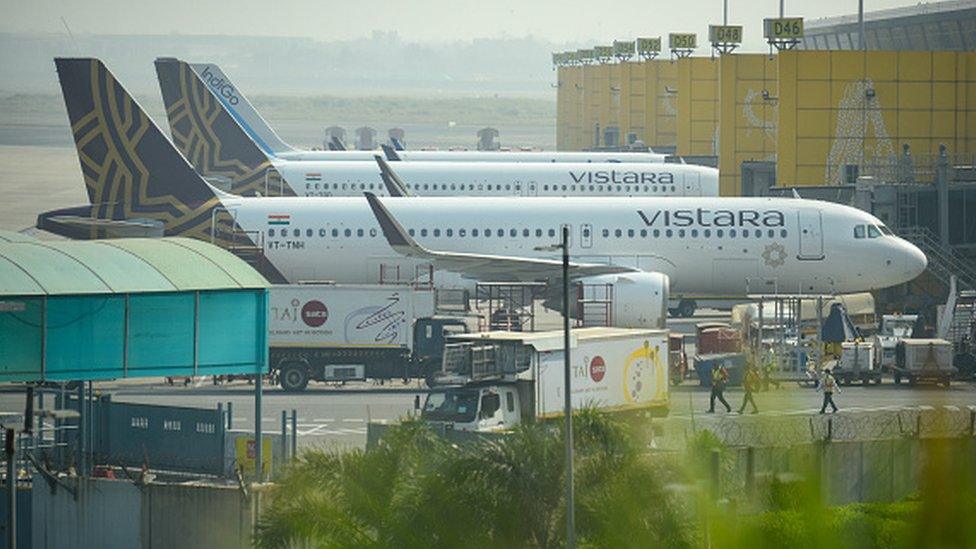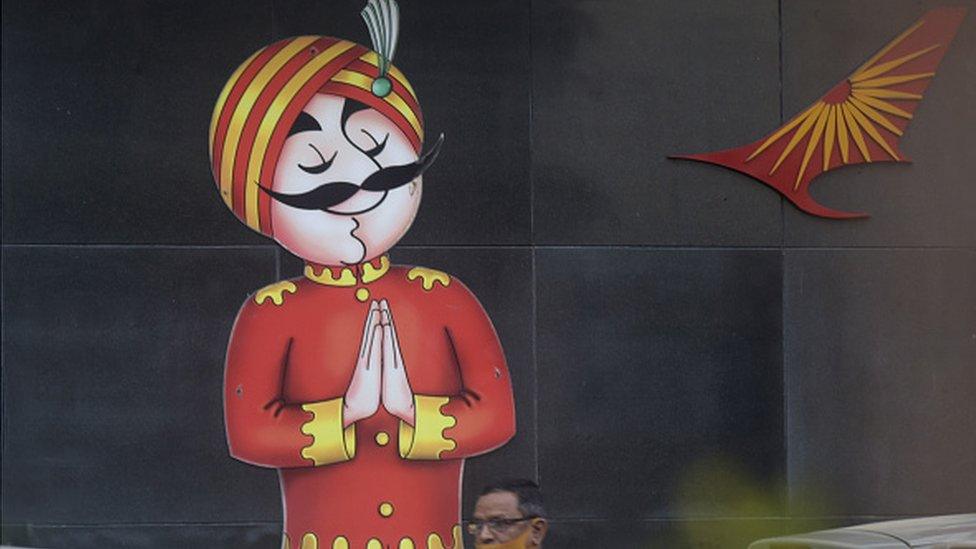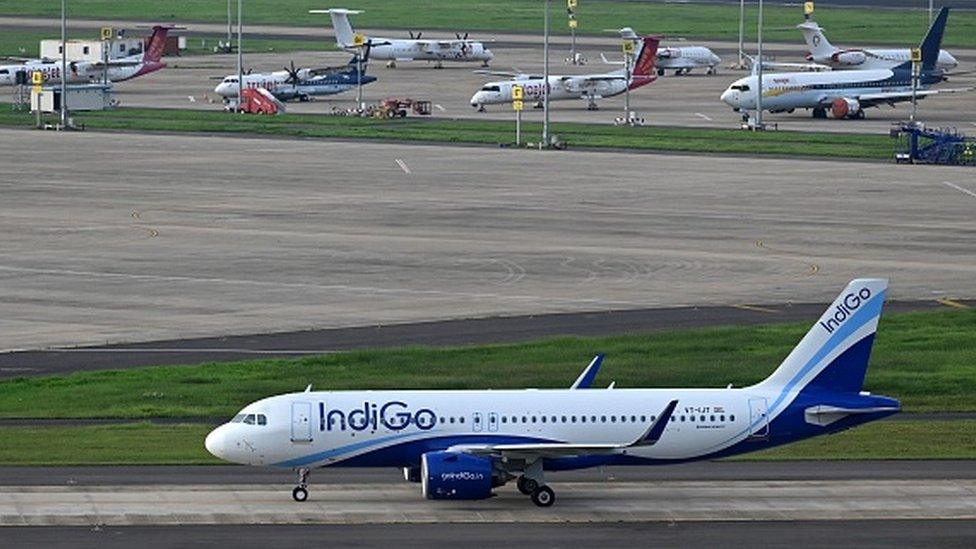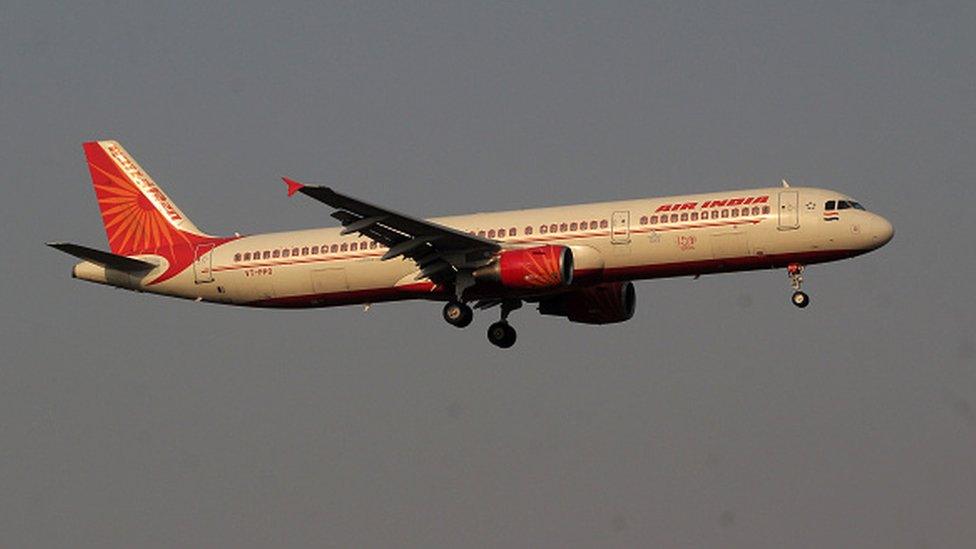Tatas' Air India-Vistara merger: Can the group conquer Indian skies?
- Published

Tata Sons operates both Air India and Air Vistara
The upcoming merger between Air India and Vistara - both operated by Indian conglomerate Tata Group - is a sound decision, experts say, but can the combined entity take on domestic market leader IndiGo?
That's the big challenge for the merged airline, which will have a market share of nearly 18%. IndiGo dominates India's domestic aviation market - the third largest in the world - with a share of more than 57%, and analysts say it will be difficult to dislodge it.
Vistara is a joint venture between Tata Group and Singapore Airlines, which will invest $250 million for a 25.1% stake in the combined entity after the merger.
Tata Group bought debt-ridden Air India - formerly India's national carrier - from the government for $2.2b (£1.8b) in 2021. The airline was once a symbol of national pride in India, but the rise of private, low-cost carriers in the 2000s was a major reason for its downfall. As India's aviation sector became more competitive, Air India began making heavy losses and relied on taxpayer-funded bailouts to stay afloat.
Now, the revamped airline is looking to take on the same rivals all over again.

The Indian government sold Air India to the Tata group as part of the its disinvestment strategy
Jitender Bhargava, a former executive director of Air India, says that the Tatas' decision to merge the two airlines is a "sound" and "timely" one.
According to government estimates, India's civil aviation market is worth around $900mn (£738mn) and is expected to grow to over $4b by 2025. But while there is opportunity in a growing market, breaking into IndiGo's stranglehold will be a formidable task.
"Even eating into 2% of IndiGo's market share will call for a lot of aggressive market strategies," Mr Bhargava points out.
India has had a long history of unsuccessful airline mergers - from Jet Airways-Air Sahara to Kingfisher Airlines-Air Deccan - due to reasons ranging from inflated deal values to soaring operational losses.
But experts are cautiously optimistic about Air India and Vistara.
Apart from these two carriers, the Tata group also controls AirAsia India - and together, the three airlines have a market share of more than 23%. There's also the international clout of Singapore Airlines and the funds it will invest into the entity.
While it is long past its glory days, Air India still has its advantages, like the prime time slots it has across domestic and international airports. The consolidation will make Air India the country's largest international carrier and second largest domestic carrier in terms of fleet size, commanding over 200 aircraft.

The Indian aviation market is currently dominated by Indigo Airlines, which commands more than half of the market share
Aviation expert Ameya Joshi says the merger makes sense for the Tatas, as it will ensure that there is a "clear focus on one brand for the group".
But the challenge will be not just to ensure financial gains, but also to restore Air India's battered reputation. That's where, experts say, the Tatas' brand value will help.
The deal will also pose a big challenge to smaller low-cost carriers such as Go First and SpiceJet, which may be pushed further to the margins.
Mr Joshi says there will now be increased pressure but fewer chances for them to grow.
"The possibilities of dominance are now very thin for both of them and they will need massive capital investments," he says.

Read more India stories from the BBC:

Related topics
- Published27 January 2022

- Published9 October 2021